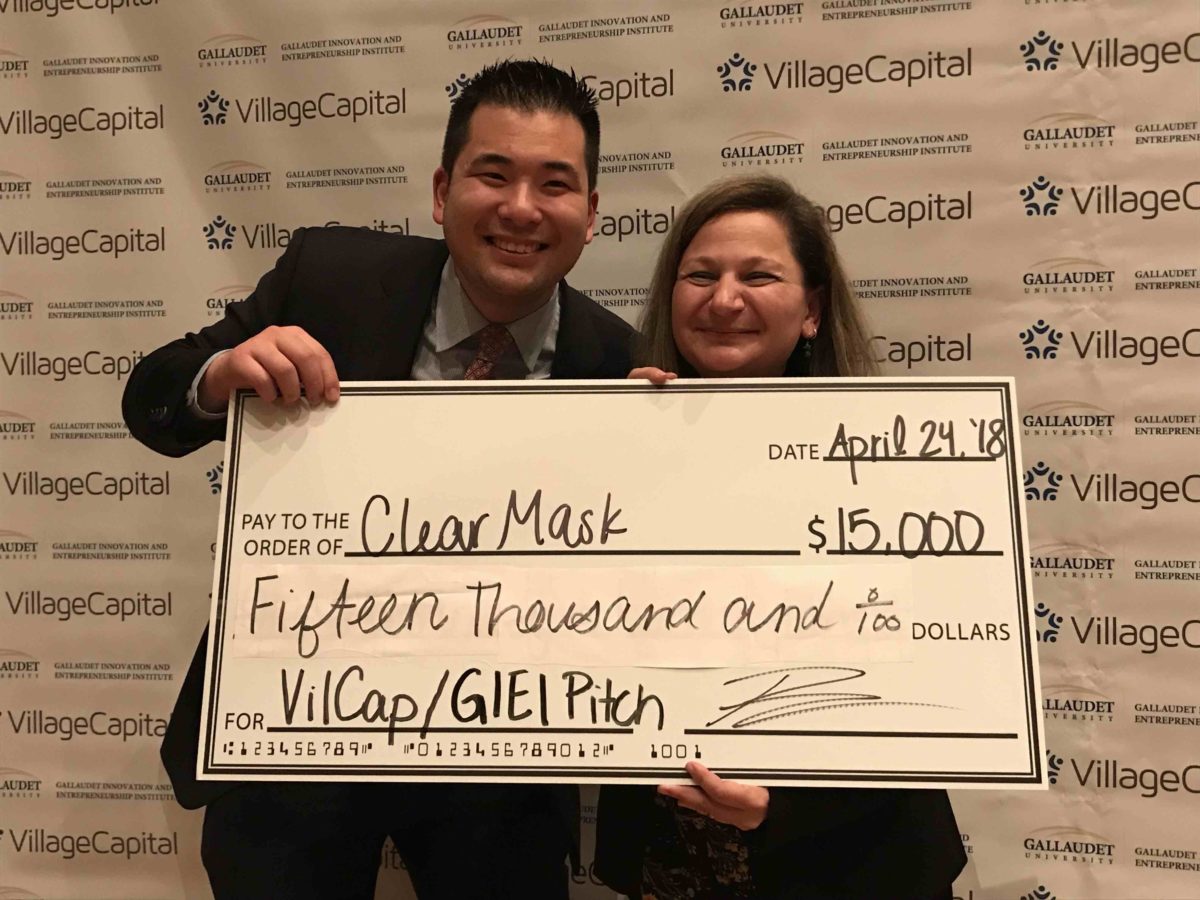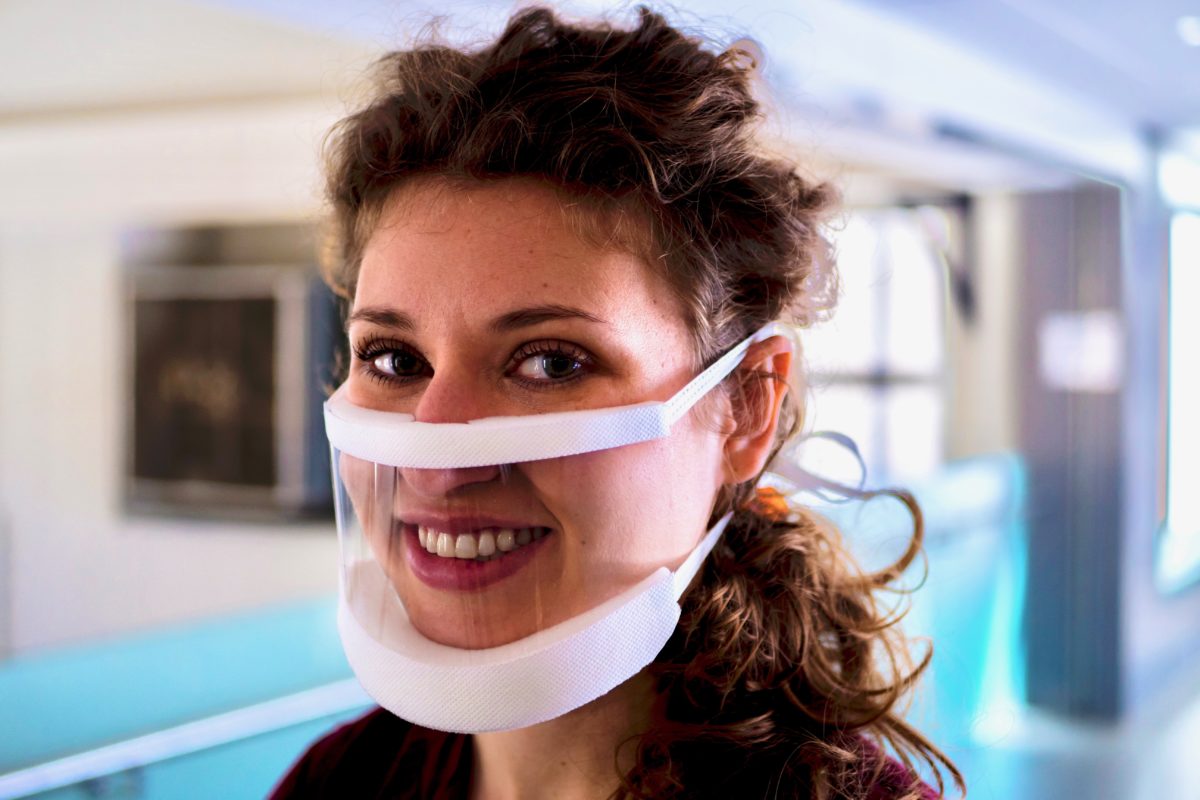A few years ago, Allysa Dittmar was about to go into surgery, but her interpreter didn’t show up.
Dittmar, who is deaf, was able to lip-read and recognize facial expressions during some of the mandated check that’s required before a procedure, but those were obscured when surgeons, nurses and anaesthesiologists, put on their masks. Things grew more frustrating, and the staff eventually gave up trying.
“At that moment, I could no longer communicate,” Dittmar said Tuesday night at the Johns Hopkins Social Innovation Lab Impact and Innovation Forum.
The experience led to the idea for a company that ended up earning a $25,000 check that night. The ClearMask is a surgical mask that is transparent. It shows the full face, even the sides – which, as Dittmar points out, can still be beneficial for lip-reading.
It’s being developed by a five-member team of Johns Hopkins students and alums, along with an alum of Gallaudet University, to solve a problem for patients who are deaf and hard of hearing, but Dittmar said the ability to see a doctor or nurse’s face can also provide help to patients who are under stress – whether adults or children – or others for whom English is not their first language.
As CEO Aaron Hsu put it, the ability to see a person’s face “transcends all cultures.”
“You don’t need to be able to understand what a person is saying if you can see their facial expression,” he said.

ClearMask wins $25K at JHU Social Innovation Lab. (Image: Larry Canner/Homewood Photography)
As it grows, the startup has been taking advantage of resources in the area. Founded in the spring 2016 by a team that also includes Inez Lam, Elyse Heob and Deborah Nathanson, the company completed the iCorps program to determine its market fit. Along with being chosen for funding by nine other startups in a peer-reviewed model in Social Innovation Lab, the team also took part in a Village Capital accelerator at Gallaudet University over the last six months. On the same night that Dittmar was awarded the winning check at Hopkins, Hsu and Nathanson won $15,000 for his pitch in D.C. It’s also a current member of the Accelerate Baltimore cohort at ETC.

CEO Aaron Hsu (left) closed out ClearMask’s time in Village Capital/Gallaudet’s accelerator. (Courtesy photo)
Design elements have been important for the team. The mask has a coating so it doesn’t fog up, and the team set out to make it more comfortable than standard masks.
Going forward, the company is working on finalizing its prototype with Harbor Designs and Manufacturing in Pigtown.
“We want to make sure we can mass produce these masks,” Hsu said. “We want to make sure we can get this where it needs to be.”
FDA approval will also be required. To that end, the startup has also been accepted to TEDCO’s mdPACE program, which assists with that process. The program’s goal is to help the startup receive regulatory approval in 12-18 months.
Join the conversation!
Find news, events, jobs and people who share your interests on Technical.ly's open community Slack

Baltimore daily roundup: Gen AI's software dev skills; UpSurge Tech Ecosystem Report; MD service year program

Baltimore daily roundup: Mayoral candidates talk tech and biz; a guide to greentech vocabulary; a Dutch delegation's visit

Baltimore daily roundup: An HBCU innovation champion's journey; Sen. Sanders visits Morgan State; Humane Ai review debate


